Life
Sign up for our newsletter
We summarize the week's scientific breakthroughs every Thursday.
-
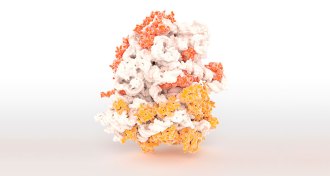 Life
LifeNot all of a cell’s protein-making machines do the same job
Ribosomes may switch up their components to specialize in building proteins.
-
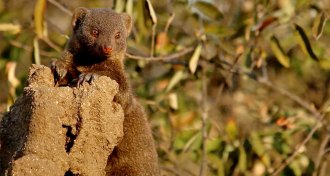 Animals
AnimalsOnce settled, immigrants play important guard roles in mongoose packs
Dwarf mongoose packs ultimately benefit from taking in immigrants, but there’s an assimilation period.
-
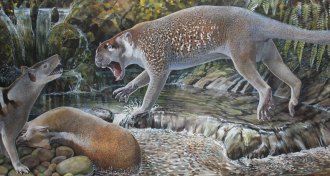 Animals
AnimalsThis ancient marsupial lion had an early version of ‘bolt-cutter’ teeth
Extinct dog-sized predator crunched with unusual slicers toward the back of its jaw.
By Susan Milius -
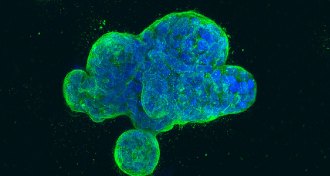 Health & Medicine
Health & MedicineWhen tumors fuse with blood vessels, clumps of breast cancer cells can spread
Breast cancer tumors may merge with blood vessels to help the cancer spread.
-
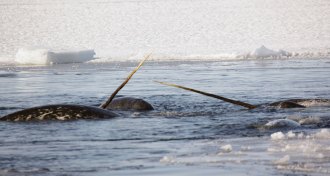 Animals
AnimalsNarwhals react to certain dangers in a really strange way
After escaping a net, narwhals significantly lower their heart rate while diving quickly to get away from humans.
-
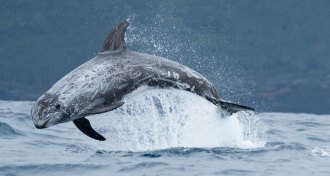 Artificial Intelligence
Artificial IntelligenceAI eavesdrops on dolphins and discovers six unknown click types
An algorithm uncovered the new types of echolocation sounds among millions of underwater recordings from the Gulf of Mexico.
-
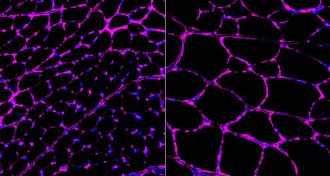 Genetics
GeneticsCRISPR/Cas9 can reverse multiple diseases in mice
A new gene therapy uses CRISPR/Cas9 to turn on dormant genes.
-
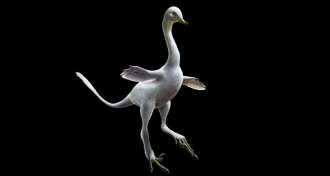 Paleontology
PaleontologyThis new dinosaur species was one odd duck
Weird dino swimmer had flipperlike limbs and a swanlike neck.
-
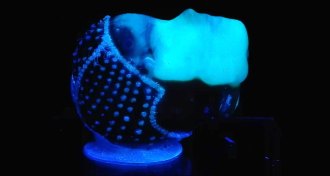 Materials Science
Materials ScienceNew 3-D printed materials harness the power of bacteria
The three-dimensional materials contain live bacteria and could generate wound dressings or clean up pollutants.
-
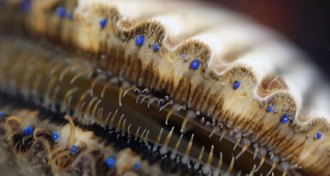 Animals
AnimalsScallops’ amazing eyes use millions of tiny, square crystals to see
Each of a scallop’s many eyes contains an intricate mirror made from millions of crystals.
-
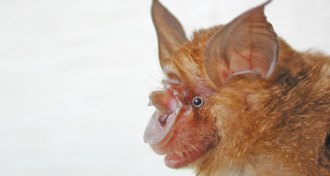 Genetics
GeneticsBats in China carry all the ingredients to make a new SARS virus
Viruses infecting bats could recombine to re-create SARS.
-
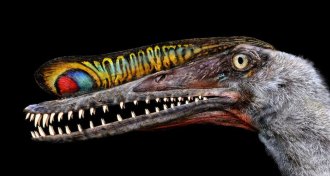 Animals
AnimalsJackpot of fossilized pterosaur eggs unearthed in China
A treasure trove of pterosaur eggs and embryos gives tantalizing clues to the winged reptile’s early development.